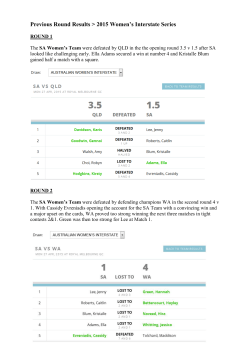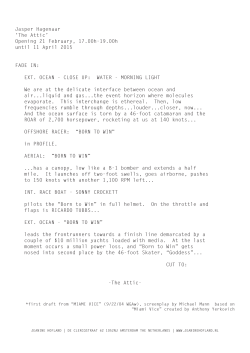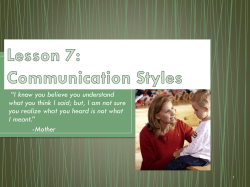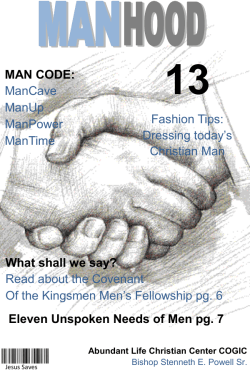
Words of Wisdom Beyond “One Way to Win” Thinking Optional Title:
Words of Wisdom
Beyond “One Way to Win” Thinking
Optional Title:
You don’t really expect me to think about
schooling differently, do you???
“The choices [students] make as
freshmen or sophomores often
constrain their college options . . .
Choice [limits] rather than increases
options for many high school students
who wish to go to college.”
David Conley, College Knowledge
Does this problem need fixing?
“It will no longer be enough to say that our
students are ‘proficient’ on state tests.
Employers want to know if a student can think,
problem-solve, create new solutions,
communicate clearly and effectively, use
technology as a tool, and – yes – get to work
on time and do the job assigned.
No state test measures that.”
Glenn Barger, retired-and rehired Superintendent
Catawba County Schools, former Co. Commissioner
Are we teaching these skills?”
“…the belief is that those who do
non-professional work are not very
bright and are ill-mannered and
generally unsophisticated . . . ”
Gray & Herr, Other Ways to Win
Do our policies and practices in
schools communicate this belief?
“High schools [and colleges] may be
hindered by their departmental
structure {WHAT?!} and consequent
compartmentalization of knowledge.”
David Conley, College Knowledge
Implications? Is there a better way?
“The other way to win and the
BEST way to win for those in the
academic middle is preparing for
those occupations in the technician
and precision/craft classification.”
Gray & Herr, Other Ways to Win
Is this tracking??? Ethical???
“Education policy should focus on meeting
the needs of the entire society and all
students. Otherwise, we will offer only
dreams and delusions to roughly half our
young people, who will not only fail to earn
a college degree, but also lack the basic
habits and skills needed to have a
productive, respectable job in society.”
James E. Rosenbaum, “Prepared for What?”
Agree? Why? Proof?
“For some kids it’s awfully important that
they see a job at the end of a sequence of
classes . . . CTE classes provide the
application – The real question is how to
use their heavy emphasis on hands-on
learning to strengthen core academics so
that students are engaged and understand
‘why they need to know this.’ ”
Ready for What? – Diplomas Count, 2007
Are we effectively linking academic
and career skills . . . courses?
“Education today must prepare
students for the 21st Century – and
give them the skills they need to be
successful in a rapidly changing,
global economy.”
Ken Kay, President
Partnership for 21st Century Skills
What are 21st Century Skills?
“I’m tired of people telling me I need to
know more about the economy. I’m a
teacher – not an economist. I’m
concerned about education. Let the
politicians and business people worry
about the economy.”
North Carolina Teacher, 2007
Yes? No? Why?
“The core problem is that our
education and training systems
were built for another era.
We can get where we must go [to
survive economically] only by changing
the system itself.”
Tough Choices or Tough Times
The Report of the New Commission on the Skills of the
American Workforce, 2007 - NCEE
What might this new system look like?
© Copyright 2025





















